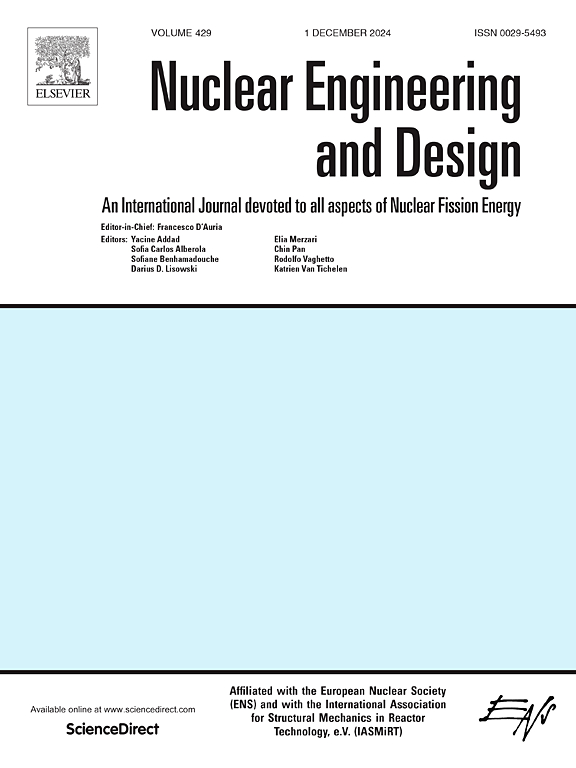A comprehensive review of pulsed research reactors: Focus on Russian periodic fast reactors
IF 1.9
3区 工程技术
Q1 NUCLEAR SCIENCE & TECHNOLOGY
引用次数: 0
Abstract
Research reactors play a crucial role in advancing scientific understanding, medical diagnostics, and nuclear technology development. This review article provides a comprehensive examination of research reactors, emphasizing classification and highlighting the unique features of periodic pulsed reactors. The classification of research reactors is elucidated, distinguishing between stationary and pulsed reactors. Stationary reactors serve diverse purposes, while pulsed reactors offer distinct advantages in certain applications as time-of-flight research and neutron generation lifetime calculation. Particular attention is given to research fast periodic pulsed reactors in Russia, showcasing their significant contributions to scientific research and technological innovation. Detailed discussions include the IBR-1, IBR-30, IBR-2, and NEPTUNE reactors, elucidating their design, capabilities, and scientific achievements. Furthermore, the article explores the utilization of Neptunium-237 as a promising nuclear fuel for fast pulsed reactors, highlighting advantages such as low neutron generation time, high neutron flux, and the ability to burn up part of dangerous nuclear waste. Overall, this review consolidates essential knowledge on research reactors and underscores the importance of ongoing research and development efforts, particularly in harnessing innovative fuels like Neptunium-237, to meet the evolving demands of science and technology.
求助全文
约1分钟内获得全文
求助全文
来源期刊

Nuclear Engineering and Design
工程技术-核科学技术
CiteScore
3.40
自引率
11.80%
发文量
377
审稿时长
5 months
期刊介绍:
Nuclear Engineering and Design covers the wide range of disciplines involved in the engineering, design, safety and construction of nuclear fission reactors. The Editors welcome papers both on applied and innovative aspects and developments in nuclear science and technology.
Fundamentals of Reactor Design include:
• Thermal-Hydraulics and Core Physics
• Safety Analysis, Risk Assessment (PSA)
• Structural and Mechanical Engineering
• Materials Science
• Fuel Behavior and Design
• Structural Plant Design
• Engineering of Reactor Components
• Experiments
Aspects beyond fundamentals of Reactor Design covered:
• Accident Mitigation Measures
• Reactor Control Systems
• Licensing Issues
• Safeguard Engineering
• Economy of Plants
• Reprocessing / Waste Disposal
• Applications of Nuclear Energy
• Maintenance
• Decommissioning
Papers on new reactor ideas and developments (Generation IV reactors) such as inherently safe modular HTRs, High Performance LWRs/HWRs and LMFBs/GFR will be considered; Actinide Burners, Accelerator Driven Systems, Energy Amplifiers and other special designs of power and research reactors and their applications are also encouraged.
 求助内容:
求助内容: 应助结果提醒方式:
应助结果提醒方式:


